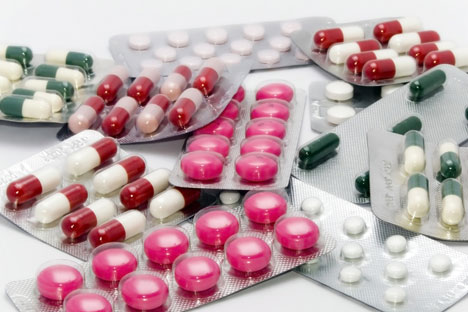Questions over clinical data from at least two Indian manufacturers of generic medicines bought by the NHS threaten to undermine British public confidence, top inspector sIndian manufacturers of cheap generic drugs prescribed by the National Health Service may not be trusted because several have altered the testing data submitted to Britain’s regulator, according to the agency’s director of inspections.
At least two Indian pharmaceutical firms which supply British chemists and hospitals had either failed to submit original data from tests on the drugs or actually changed the data on which the regulatory body decides whether they meet the required manufacturing standards and can remain on sale in Britain.
The disclosure was made by Gerald Heddell, director of inspections at the Medicines and Healthcare Products Regulatory Agency which inspects all plants manufacturing drugs for use in Britain, in an interview with the Economic Times of India.
His comments follow the recall of five drugs manufactured by Wockhardt, one of India’s largest producers of cut-price generic medicines. They also follow the record fine against Ranbaxy, the largest Indian supplier of generics to Britain, by the United States’ Food and Drugs Administration (FDA) earlier this year.
Generic drugs are cut price versions of branded medicines and their increasing use in Britain saves the National Health Service billions of pounds every year. Around 20 per cent of medicines sold in Britain are generics from India.
Related Articles
• Britain ignored warnings of Indian whistleblower at heart of drugs scandal
13 Jun 2013
• Ranbaxy Labs’ Singh dynasty ends
24 May 2009
• Patent row settlement boosts UK giant
16 Apr 2008
• Giving big pharma a headache
24 Oct 2004
• India’s generic prescription for Big Pharma
22 Jun 2008
Their use however has come under intense scrutiny since Ranbaxy, the largest Indian supplier to Britain, was fined £330 million by the FDA – a record for a generic manufacturer – earlier this year. It accepted seven charges of selling improperly prepared drugs, failing to report that its drugs did not meet specifications and submitting false information. The FDA and Britain’s MHRA had been alerted by a whistleblower who revealed that the company had used a testing lab which submitted falsified data on the shelf-life of the medicines. Britain’s MHRA also found significant deficiencies in its Indian operations including poor test record keeping, mixing different strengths of tablets and failing to properly test for storage conditions and shelf-life.
In the interview, Mr Heddell said while the British public had not lost confidence in Indian medicines it might yet if its manufacturers do not become more transparent in their handling of testing data and avoid further controversies.
According to the Economic Times, Mr Heddell said there had been concerns about 90 products made by Wockhardt, one of the largest Indian medicines suppliers to Britain, and that 60 of them were recalled.
“The issue, the biggest single issue that we are concerned about, is the degree to which we can trust their data which they produce. There are other GMP (good manufacturing practice) non-compliances, but the thing that concerns us the most, at the top of the list is, that can we trust data from this company?” he told the paper.
There had been cases where the firms had rewritten damaged test data documents and submitted them as clean copies, he said. “You cannot do that. You have to retain original records. So it went on from just being wanting to please to actually changing some of the data. It was not just the Wockhardt case, but an earlier case. So yes, there is an element of wanting to please. But the best way to please us is to recognise that there is an issue, to deal with it, and to prevent it from recurring and make sure everybody has confidence on those documents,” he added.
His mission in India was in part to encourage its drugs manufacturers to operate more openly and honestly and “don’t just tell us what we want to see”, he said.
Both Ranbaxy and Wockhardt have insisted that they have not misled the British regulator nor put British patients’ health and safety at risk. They noted that regulators had confirmed they had found no evidence that the medicines concerned were unsafe or defective. However Ranbaxy pleaded guilty in May to violations of US federal drugs safety regulations and agreed to pay a $500 million fine.








